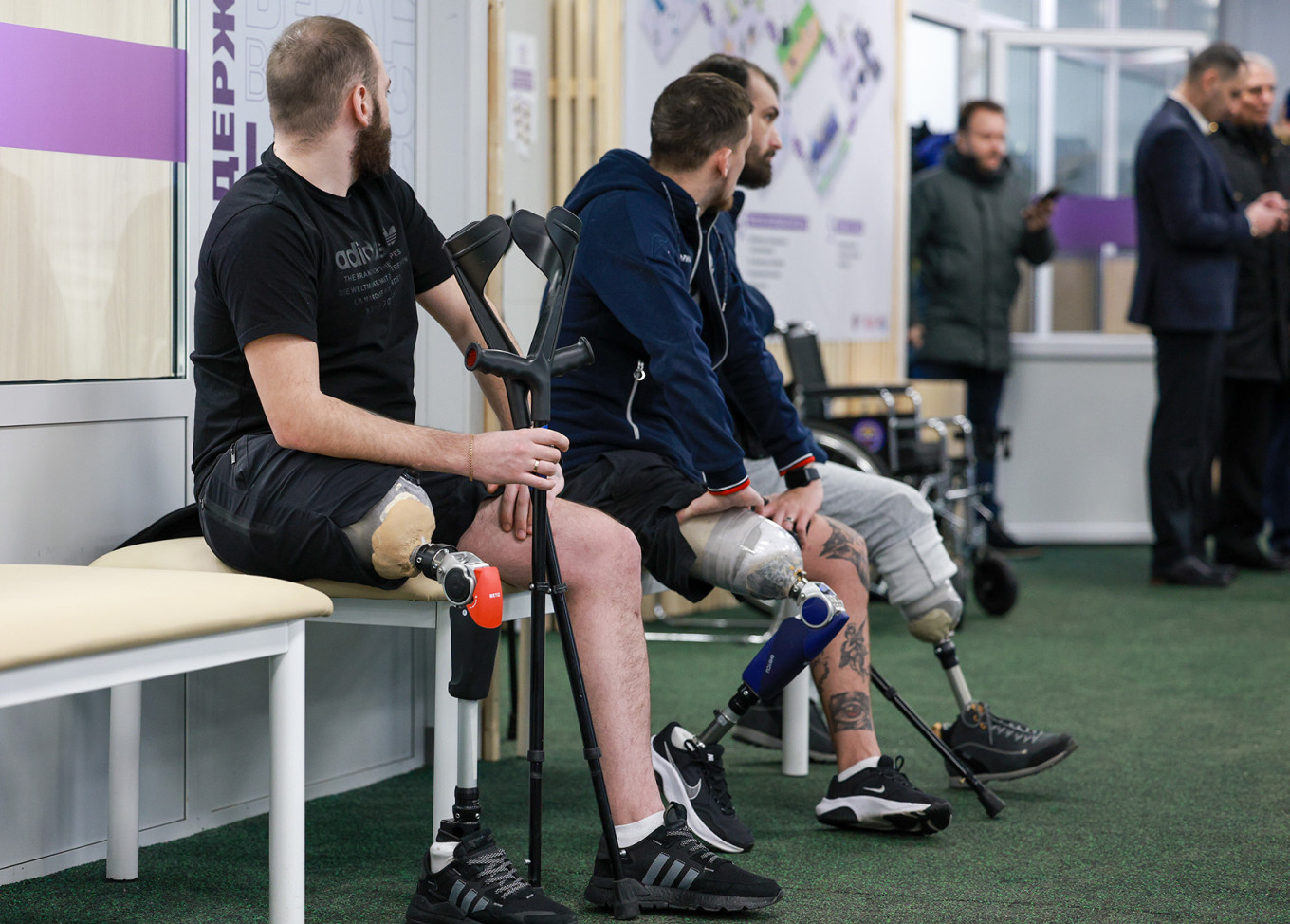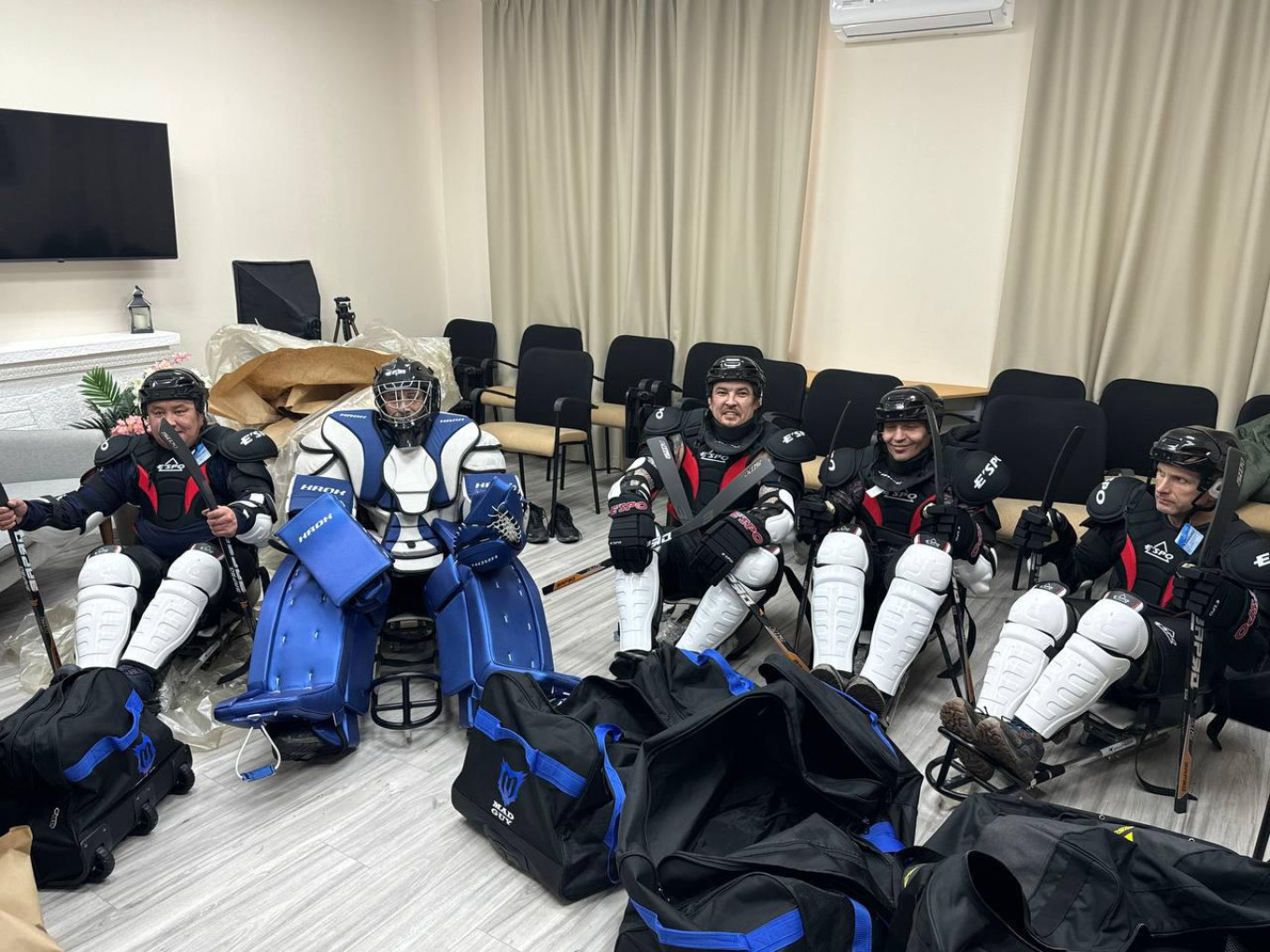“If there are no disability payments or awards, can I at least get a parrot on my shoulder to fit the image?” says Konstantin, a former Russian soldier who lost his leg during the war in Ukraine, in a comment on social media.
Konstantin is addressing the state-run Defenders of the Fatherland Foundation, which helps Russian veterans reintegrate into civilian life — including those who lost arms or legs in the full-scale invasion.
According to Russia’s Labor Ministry, at least 54% of soldiers who have disabilities after fighting in Ukraine are amputees. Even government officials acknowledge the scale of the issue.
“That’s a lot. We don’t see this percentage of amputations among civilians with disabilities,” said Alexei Vovchenko, deputy labor and social protection minister.
The Defenders of the Fatherland Foundation, created in 2023 by the personal decree of President Vladimir Putin, is headed by Deputy Defense Minister Anna Tsivilyova — reportedly a relative of Putin’s.
Starting in 2025, the foundation plans to promote the image of Russian veterans with disabilities and amputations as “heroes with enhanced capabilities,” Tsivilyova said at a recent meeting.
On social media, the foundation shares stories of veterans who have received prosthetics through its programs.
But in the comments under these stories, soldiers’ relatives regularly complain about delayed payments and surgeries; unanswered requests to the foundation and government officials; and efforts to find missing soldiers.
And in the long term, many of these men will grapple with societal stigma and re-adjusting to civilian life.
“Why is everything always painted so nicely online when real life is nothing like that? We submitted documents to the foundation for additional payments on December 25, 2024 — it’s now the end of March 2025!” a wounded soldier’s relative complains in a comment under a post about car giveaways.
When a soldier is wounded on the front line, medics evacuate them from the battlefield. In the case of serious injuries — such as shrapnel wounds to the leg or stepping on a landmine — field doctors at military hospitals often perform amputations on the spot.
After amputation, soldiers are transferred to hospitals in Rostov-on-Don, St. Petersburg or Moscow for further surgery.
From there, they undergo rehabilitation at a Defense Ministry recovery center, the largest of which is Voronovo, located just outside Moscow. Six hundred former soldiers are currently being treated at the center, which was built during the Covid-19 pandemic in 2020.
At Voronovo, veterans stay in comfortable double rooms with private showers, TVs and internet access, journalists from the independent outlet Vyorstka revealed.

Alexander Shcherbak / TASS
Disabled soldiers are served meals from Vkusno i Tochka, the fast-food chain that replaced McDonald’s in Russia following the invasion, and are allowed to smoke. However, the rehabilitation buildings lack sufficient elevators to accommodate wounded veterans. Nor are family members are allowed onto the facility’s grounds.
Previously, Russian soldiers injured on the battlefield were entitled to a one-time payment of 3 million rubles ($35,300). In November 2024, Putin approved a tiered system based on the severity of the injury, ranging from 1 million rubles (about $12,000) for minor injuries to 3 million rubles for severe ones.
While the soldiers undergo rehabilitation and get fitted for prosthetics, the Defense Ministry continues to pay their salaries, said Olesya Gerasimenko, an independent journalist and editor-in-chief of the Punctuation Marks publishing house.
“Once they receive an official disability classification, they aren’t sent back to Ukraine if the injury is serious. Instead, they’re offered positions in draft offices, barracks or rear units inside Russia. But that comes with a very different paycheck — 40,000 to 70,000 rubles [$437 to $835], not the 250,000 to 300,000 [$2,954 to $3,571] they had gotten used to,” Gerasimenko told The Moscow Times after interviewing dozens of veterans.
“Or military personnel can resign, terminate their contract with the Defense Ministry and look for a job in civilian life,” she said.
While these soldiers undergo rehabilitation, their wives try to navigate the bureaucracy — seeking state compensation and figuring out how to get their husbands officially discharged from military service so they are no longer counted as active-duty personnel.
“There haven’t been any payments yet, the unit refuses to speak with my husband; no one is going to discharge him. He’s still in the hospital and we need money for rehab,” writes the wife of one wounded soldier on VKontakte.

fond_ZO / Telegram
The government has turned to sports as a way to support these returning soldiers. The Defenders of the Fatherland Foundation now organizes athletic competitions for amputee veterans, hires well-known Paralympians to train wounded troops and provides prosthetics and high-end gifts like hand-controlled cars.
“Notably, the president supported the idea of promoting adaptive sports,” Tsivilyova said after a recent meeting with Putin.
In mid-March, the foundation started purchasing equipment for sled hockey, a sport for men who lost legs during the war in Ukraine.
“Sled hockey brought me back to a full life — and at the same time, it fueled my inner drive to win!” says former soldier Aman Aymukhambetov, captain of the Omsk Wings sled hockey team.
Hockey is one of Putin’s favorite sports, along with sambo — but it’s far from the only option for Russian veterans with disabilities. The Defenders of the Fatherland Foundation also offers combat veterans training in alpine skiing and even wheelchair curling.
This spring, 360 former soldiers from 60 regions participated in a sporting competition called the Defenders of the Fatherland Cup.
“Your lungs are bursting in your chest, but you must push through it,” pro-war singer Oleg Gazmanov sings to wounded soldiers in the competition’s anthem. Comments under the foundation’s post promoting the new anthem have been disabled.
In parallel with the Cup, the foundation launched a program called Rehabilitation Through Sport, which provides prosthetics for amputee soldiers and then sends them to train at a ski resort in the Kemerovo region of Siberia.
The initiative is supported by Rostec, the state-owned conglomerate that develops and exports high-tech industrial products, primarily for the defense sector.
“We have over 40 events and competitions on the calendar this year for veterans with disabilities, per the instructions of our president,” said Sports Minister Mikhail Degtyarev.
Russia’s Paralympic Committee is also directly involved in supporting wounded soldiers. Its “We Are Together. Sport” program has received presidential funding since 2023. In early 2025, the initiative was awarded another government grant of 12.5 million rubles (nearly $150,000).
Over the past two years, 750 wounded participants in the invasion of Ukraine have undergone rehabilitation through sport.
To join training sessions with Paralympians, veterans must complete a special questionnaire. In addition to height and shoe size, men are asked to detail how they were injured, list their awards and military ranks and indicate their disability classification. The online form cannot be submitted without an official combat veteran ID number — which is obtained via a long, complex process.
Despite the best efforts of propaganda and state-backed foundations, veterans who return home with disabilities or amputations often struggle to adapt to civilian life.
“These soldiers feel abandoned,” Gerasimenko told The Moscow Times. “They didn’t receive the admiration and respect from civilians that state propaganda had led them to expect. Some said that people on buses physically recoiled from them when they saw someone in uniform missing a leg.”
Beyond the social stigma they face, many of these men are unable to envision a future for themselves outside of the war, Gerasimenko said.
“Even before the war, many contract soldiers didn’t have a clear worldview,” Gerasimenko explained. “That’s part of the reason they ended up on the front lines. Signing a contract with the Defense Ministry was one of the few major decisions in their lives — an attempt to find some kind of purpose.
“They usually know exactly how they’ll spend the money: consumer goods, from new gaming consoles to cars and apartments, especially if they have a family,” Gerasimenko said. “But beyond that — what job to do, how to integrate their disability into daily life, what kind of family future awaits — they have no idea. They have no vision of the future.”
A Message from The Moscow Times:
Dear readers,
We are facing unprecedented challenges. Russia’s Prosecutor General’s Office has designated The Moscow Times as an “undesirable” organization, criminalizing our work and putting our staff at risk of prosecution. This follows our earlier unjust labeling as a “foreign agent.”
These actions are direct attempts to silence independent journalism in Russia. The authorities claim our work “discredits the decisions of the Russian leadership.” We see things differently: we strive to provide accurate, unbiased reporting on Russia.
We, the journalists of The Moscow Times, refuse to be silenced. But to continue our work, we need your help.
Your support, no matter how small, makes a world of difference. If you can, please support us monthly starting from just $2. It’s quick to set up, and every contribution makes a significant impact.
By supporting The Moscow Times, you’re defending open, independent journalism in the face of repression. Thank you for standing with us.
Continue
Not ready to support today?
Remind me later.
×
Remind me next month
Thank you! Your reminder is set.
#Losing #Limbs #War #Russian #Amputee #Veterans #Grapple #Officials #Empty #Promises













Leave a Reply